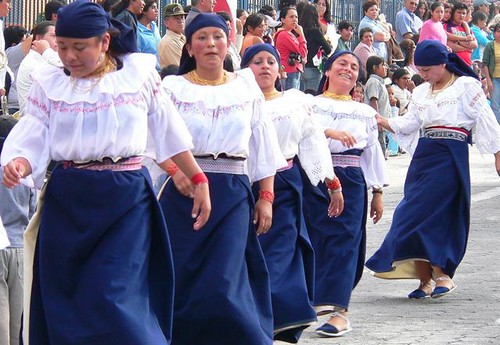OLVIDAR VS OLVIDARSE

Olvidar is transitive, this just means it needs a direct object, so to use olvidar you can’t just forget, you need to forget ‘something’:
Olvidé las llaves. I forgot the keys.
¡Olvídalo! Forget it!
Jamás te olvidaré. I will never forget you.
No olvide su vuelto. Don’t forget your change.
Nunca olvidaremos a nuestro gran amigo Pablo. We’ll never forget our great friend Paul.
Olvidé incluir los links al articulo y a la encuesta. I forgot to include the links to the article and to the survey.
No voy a olvidar nunca mi visita a Ecuador. I’m never going to forget my trip (visit) to Ecuador.

Olvidarse (like most pronominal verbs) is intransitive, so it doesn’t need a direct object.
Me olvidé. I forgot.

Olvidarse is especially good for describing something you forgot to do, but because it is intransitive it should be followed by the preposition ‘de’: (although you will however sometimes see it without)
Me olvidé de poner la alarma. I forgot to put the alarm on.
Te olvidaste de mí. You forgot me.
(Él) Se olvidó de cerrar la puerta. He forgot to lock the door.
¿Por qué nos olvidamos de fechas importantes? Why do we forget important dates?
What if you don’t want to take or assign the blame for something being forgotten? To say something was forgotten by accident use ‘olvidársele algo a alguien‘
Se me olvidó el helado. I forgot the icecream
Antes de que se me olvide. Before I forget.
Use the singular form of olvidarse if only one thing or one action was forgotten
Se le olvidó el libro (a él)
He forgot the book. (or rather, the book was forgotten to him)
Se le olvidó el número de teléfono (a ella)
She forgot the telephone number (or rather, the telephone number was forgotten to her)
Se me olvidó comprar flores (a mí;)
I forgot to buy flowers. (or rather the buying of the flowers was forgotten to me)
NB – although flowers is plural here the action is singular so olvidarse is used in the singular too
Use the plural form of olvidarse if more than one thing was forgotten

Se me olvidaron las llaves (a mí;).
I forgot the keys. (or rather, the keys were forgotten to me).
NB – the keys are plural so it’s se olvidaron in the plural, (instead of se olvidó ) to match.
Se le olvidó el maletín.
He forgot his briefcase.
¡Lo siento, se me había olvidado por completo!
I’m sorry, I’d completely forgotten!
¿Te has olvidado de lo que me prometiste?
Have you fogotten what you promised me?
Pedimos una tortilla española pero a la cocinera se le olvidaron las patatas.
We asked for a Spanish omlette but the cook forgot the potatoes.
(this form helps us to make the forgetting sound accidental and the tone is not as accusatory)

¡Olvidémoslo!
Let’s forget about it! (in annoyance)
Más vale olvidarlo.
It’s better we forget it. Let’s forget it. (much kinder)
Sometimes meanings overlap between ‘olvidar’ and ‘olvidarse’ but often the nuance of ‘forgetting about’ something is included in olvidarse.
Eg: María olvidó el dinero. Maria forgot the money. (didn’t bring it)
María se olvidó del dinero. Maria forgot about the money. (kissed it goodbye)